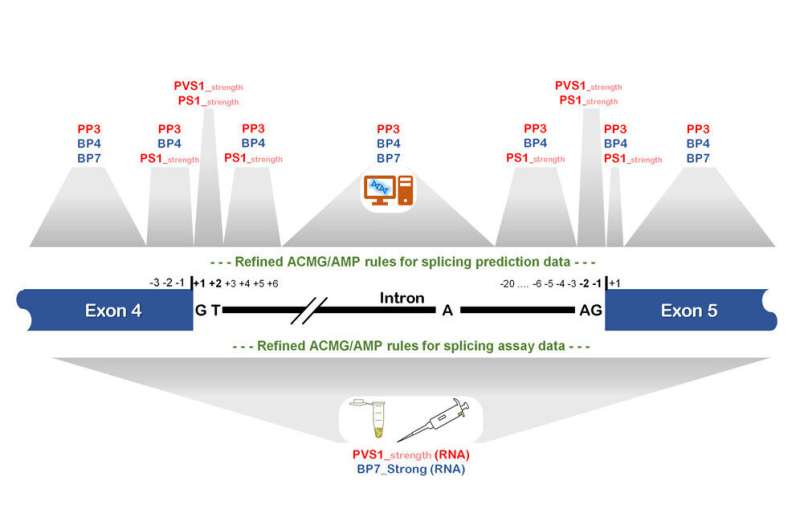This article has been reviewed according to Science X's editorial process and policies. Editors have highlighted the following attributes while ensuring the content's credibility:
fact-checked
peer-reviewed publication
trusted source
proofread
Researchers improve RNA diagnostics to provide more certainty for genetic testing

Findings from a new international study look set to improve rates of diagnosis for patients undergoing genetic testing in Aotearoa New Zealand and around the world.
The research, published in The American Journal of Human Genetics, could pave the way for earlier intervention in the treatment of patients with genetic diseases and possibly prevent such diseases developing in patients and their whānau.
Associate Professor Logan Walker from the University of Otago, Christchurch's Department of Pathology and Biomedical Science, was a leading member among eight international researchers tasked with improving RNA diagnostics for laboratories worldwide.
"The study will help people undergoing genetic testing to have more certainty—whether changes to their DNA increase their risk of disease or whether those changes have no medical relevance at all," says Walker, who was joined by fellow New Zealand researcher Dr. George Wiggins (University of Otago, Christchurch) and other colleagues in the United States, Australia and Spain.
"Genetic testing enables disease-associated DNA changes to be identified so patients can receive the best treatment or preventative therapies. However, many identified genetic changes are still an enigma, with scientists struggling to understand whether they cause harm or not. This lack of certainty causes anxiety for patients and their whānau, and prevents doctors from providing the best health care," Walker says.
The project focused on a developing area known as RNA diagnostics. This involves scientists examining how changes to DNA affect a similar but different molecule called RNA. Understanding if and how the RNA molecule is altered by a DNA variant can help diagnose the clinical relevance of that variant. Analyzing changes to RNA molecules also helps reduce reliance on population-based genetic methods which are susceptible to ethnic biases (which create inequity in health care).
The research team collated and organized a large amount of genetic testing information from both published scientific literature as well as commercial companies dedicated to advancing genetic health care. Careful analysis of these large datasets enabled the team to develop important recommendations for diagnostic and research laboratories when using RNA-based assays and computational methods to examine a new DNA variant.
"There is much discordance in the way different laboratories examine the RNA molecule and draw their conclusions. Our study will act as an instruction manual for these laboratories to help improve and standardize their diagnostic methods. We've already received positive feedback from different diagnostic labs which is extremely encouraging," says Walker.
The introduction of new cost-effective DNA sequencing technologies for genetic testing will continue to increase the number of such tests being undertaken around the world.
Interpreting the results of genetic tests remains a major challenge for health care professionals.
Associate Professor Walker hopes this study will guide the activities of more than 50 international specialist groups affiliated with ClinGen tasked with developing guidelines for their own disease specific genes.
More information: Logan C. Walker et al, Using the ACMG/AMP framework to capture evidence related to predicted and observed impact on splicing: Recommendations from the ClinGen SVI Splicing Subgroup, The American Journal of Human Genetics (2023). DOI: 10.1016/j.ajhg.2023.06.002





















